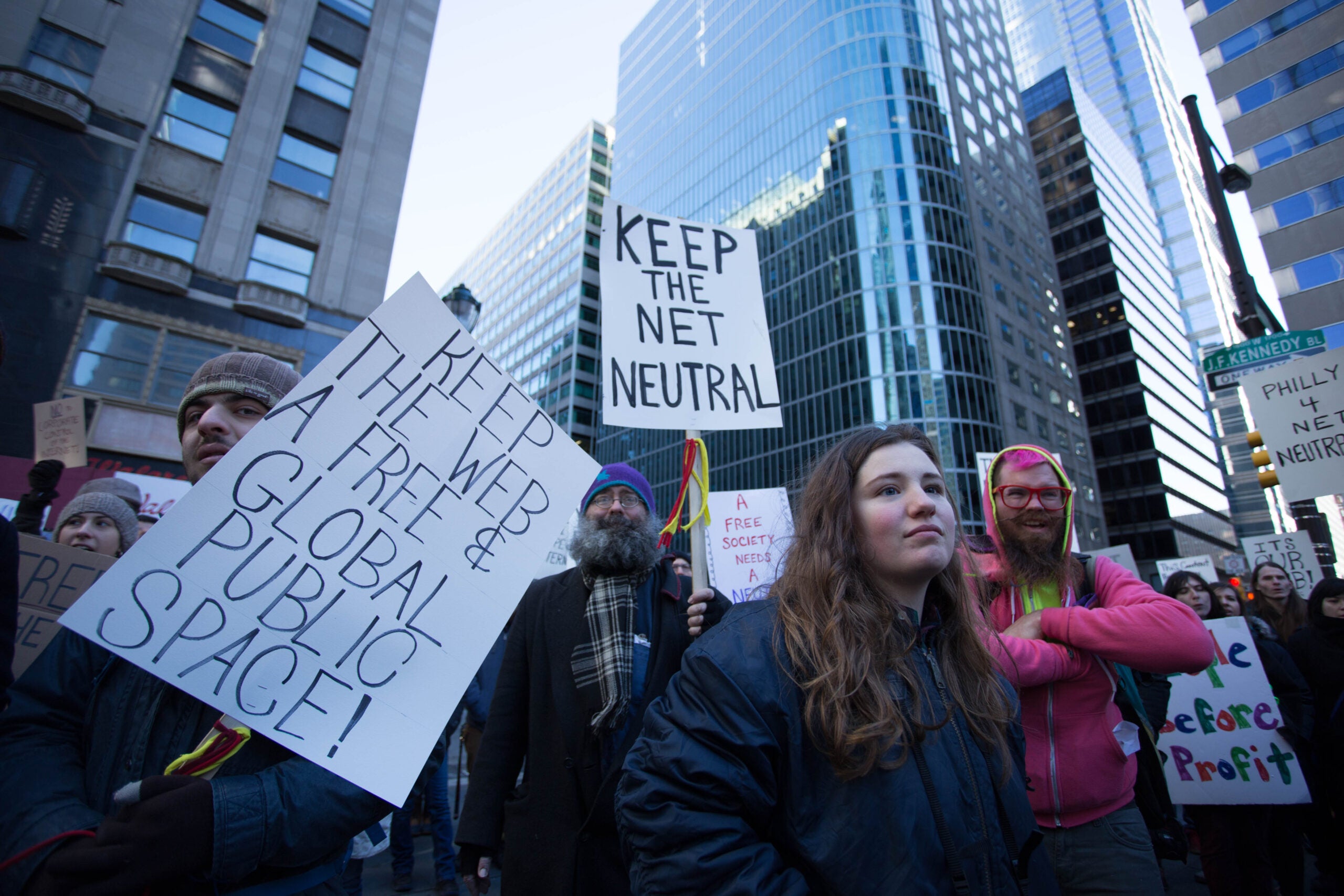
As the results of the 2018 come in, the Democrats officially have control of the House of Representatives with 219 seats.
Although some seats are yet to be confirmed, the Democrats have already gained more than the 23 seats they need for a majority. The Republicans still have control of the Senate with 51 seats, but for the first time in eight years, the party does not have a majority in the House of Representatives.
This result could have an impact on the next two years of the Trump administration. Democrats will have more influence in passing legislation, making it harder for the Trump administration to pass laws which have so far gone through without much opposition. As well as curbing aggressive policies related to immigration and various other issues, the topic of net neutrality could be one affected by the congressional shake-up.
What is net neutrality?
Net neutrality is the principle that Internet service providers treat all data on the Internet equally, without blocking, slowing or charging certain websites more money.
In 2015 the Obama administration, the Federal Communications Commission’s (FCC) brought in rules protecting these principles, prohibiting internet providers from favouring certain content over others. However, these rules expired in June, and the form that their replacement should take has become a political battleground.
Last December, the FCC voted to repeal these regulations, meaning there are currently no rules preventing internet providers from blocking or slowing certain content.
How well do you really know your competitors?
Access the most comprehensive Company Profiles on the market, powered by GlobalData. Save hours of research. Gain competitive edge.

Thank you!
Your download email will arrive shortly
Not ready to buy yet? Download a free sample
We are confident about the unique quality of our Company Profiles. However, we want you to make the most beneficial decision for your business, so we offer a free sample that you can download by submitting the below form
By GlobalDataIn May, the US Senate narrowly voted 52-47 in favour of overturning the Federal Communications Commission’s (FCC) decision to reverse net neutrality regulations introduced in 2015 during the Obama administration.
However, many Republicans have sided with internet service providers in repealing net neutrality laws, believing that they stifle competition, including President Trump who apointed Ajit Pai to head up the FCC, the former Verizon lawyer who supports repealing net neutrality.
Democrats in Congress, as well as many internet companies, have spoken out in favour of restoring Obama-era net neutrality laws.
On Monday, the Supreme Court declined an appeal from several internet providers to overturn a net neutrality rule, brought in under the Obama administration, which bans them from giving preferential treatment to some web traffic. However, the debate rages on.
What impact could the midterms have?
Although the midterms may not have delivered the “blue wave” forecast by some, the new Democrat majority will give advocates the backing needed to advance bills that stop service providers from slowing traffic. In other words, any Congressional action on net neutrality could be revived through increased pressure from Democrats.
Even though the US may appear deeply divided politically, the majority of voters are united in the importance of net neutrality, with 81% of Democrats and 73% of Republicans in favour. Some have even speculated that the issue may have encouraged young , millennial voters to take to the polls.
Of the 34 seats that have so far changed hands, 21 representatives, or 62%, have at some point spoken out in favour of net neutrality. Although it is worth noting that three of the new representatives have reportedly received “campaign donations” from ISPs, the majority support net neutrality legislation.
Frank Pallone, representative for New Jersey told Bloomberg Law:
“We plan to put the consumer first by pushing policies that protect net neutrality, promote public safety, and provide meaningful privacy and data security protections that are seriously lacking today.
He also explained how Democrats intend to exert more pressure on the FCC through “regular oversight hearings with all commissioners”.
House speaker Pelosi’s role
Previous minority leader, and now house speaker, Nancy Pelosi, has been an outspoken supporter of net neutrality, describing the overturning of net neutrality regulation as the “destruction of the free and open internet”.
Pelosi has proposed an “Internet Bill of Rights”, to offer consumers more protection on issues such as data privacy.
However, the midterms do not mean that the threat to net neutrality has by any means gone. Marsha Blackburn, one of the most outspoken adversaries of net neutrality, has won a seat in the Senate. Blackburn is pushing the “Open Internet Preservation Act,” a bill that would allow internet providers to create paid fast lanes.
Any legislation protecting net neutrality would have to be signed by President Trump, and would have to pass through the Republican majority Senate, making legislative change difficult.
Author and senior editor at the Mises Institute Ryan McMaken believes that the division in Cogress means that passing an new legislation may be difficult:
“With the Congress split, there’s unlikely to be any change to the current situation, at least at the federal level. the Democrats have gained ground in several state houses, so we might see some state-level efforts, but with Trump gaining in the US Senate, the federal status quo looks solid for now.”







